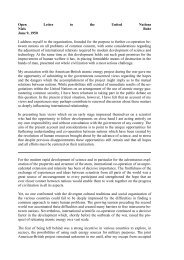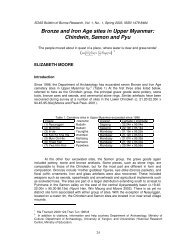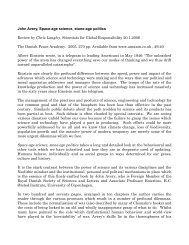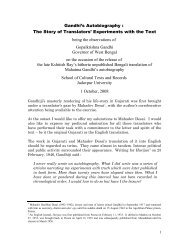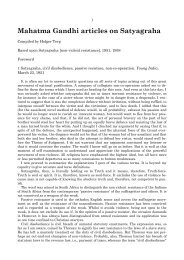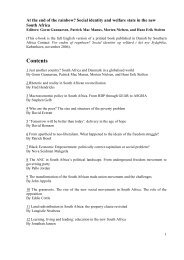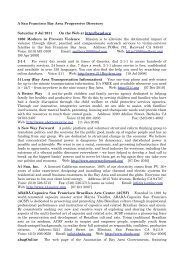THE SLAVERY OF OUR TIMES PREFACE / INTRODUCTION
THE SLAVERY OF OUR TIMES PREFACE / INTRODUCTION
THE SLAVERY OF OUR TIMES PREFACE / INTRODUCTION
You also want an ePaper? Increase the reach of your titles
YUMPU automatically turns print PDFs into web optimized ePapers that Google loves.
Latterly the hours of labor have diminished and the rate of wages has increased; but<br />
this diminution of the hours of labor and this increase in wages have not improved the<br />
position of the worker, if one takes into account not their more luxurious habitswatches<br />
with chains, silk kerchiefs, tobacco, vodka, beef, beer, etc.- but their true<br />
welfare-that is, their health and morality, and chiefly their freedom.<br />
At the silk factory with which I am acquainted, twenty years ago the work was chiefly<br />
done by men, who worked fourteen hours a day, earned on an average fifteen rubles a<br />
month, and sent the money for the most part to their families in the villages. Now<br />
nearly all the work is done by women working eleven hours, some of whom earn as<br />
much as twenty-five rubles a month (over fifteen rubles on the average), and for the<br />
most part not sending it home, but spend all they earn here chiefly on dress,<br />
drunkenness and vice. The diminution of the hours of work merely increases the time<br />
they spend in the taverns.<br />
The same thing is happening, to a greater or lesser extent, at all the factories and<br />
works. Everywhere, notwithstanding the diminution of the hours of labor and the<br />
increase of wages, the health of the operatives is worse than that of country workers,<br />
the average duration of life is shorter, and morality is sacrificed, as cannot but occur<br />
when people are torn from those conditions which most conduce to morality-family life,<br />
and free, healthy, varied and intelligible agricultural work.<br />
It is very possibly true that, as some economists assert, with shorter hours of labor,<br />
more pay, and improved sanitary conditions in mills and factories, the health of the<br />
workers and their morality improve in comparison with the former condition of factory<br />
workers. It is possible also that latterly, and in some places, the position of the factory<br />
hands is better in external conditions than the position of the country population. But<br />
this is so (and only in some places) because the government and society, influenced by<br />
the affirmation of science, do all that is possible to improve the position of the factory<br />
population at the expense of the country population.<br />
If the condition of the factory-workers in some places is (though only in externals)<br />
better than that of country people, it only shows that one can, by all kinds of<br />
restrictions, render life miserable in what should be the best external conditions, and<br />
that there is no position so unnatural and bad that men may not adapt themselves to<br />
it if they remain in it for some generations.<br />
The misery of the position of a factory hand, and in general of a town-worker, does not<br />
consist in his long hours and small pay, but in the fact that he is deprived of the<br />
natural conditions of life in touch with nature, is deprived of freedom, is compelled to<br />
compulsory and monotonous toil at another man's will.<br />
And, therefore, the reply to the questions, why factory and town workers are in a<br />
miserable condition, and how to improve their condition, cannot be that this arises<br />
because capitalists have possessed themselves of the means of production, and that<br />
the workers' condition will be improved by diminishing their hours of work, increasing<br />
their wages, and communalising the means of production.<br />
The reply to these questions must consist in indicating the causes which have<br />
deprived the workers of the natural conditions of life in touch with nature, and have





